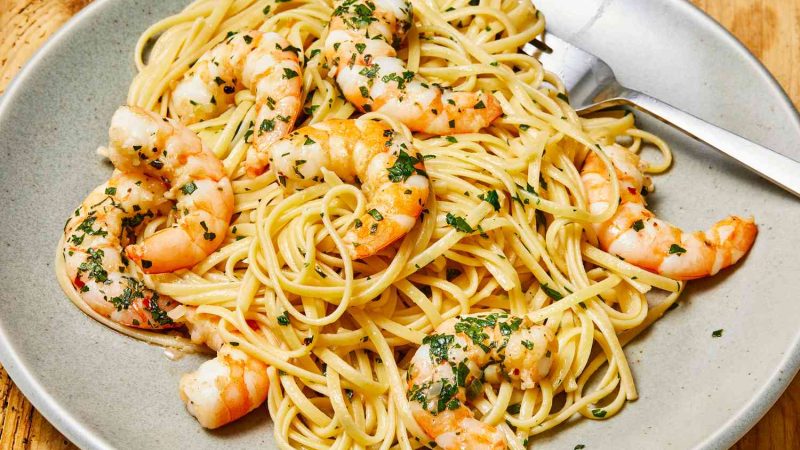Gastronomy, the art and science of good eating, is a multidisciplinary field that encompasses culinary arts, food science, culture, history, and sustainability. For those passionate about exploring the intricacies of food and its cultural significance, learning gastronomy offers a rich and rewarding journey. In this article, we delve into the steps and resources for embarking on a gastronomic learning adventure.

1. Understand the Foundations Gastronomic:
Contents
- 0.1 1. Understand the Foundations Gastronomic:
- 0.2 2. Explore Culinary History and Culture:
- 0.3 3. Study Food Science and Nutrition:
- 0.4 4. Experiment in the Kitchen:
- 0.5 5. Engage with Food Literature:
- 0.6 6. Attend Culinary Classes and Workshops:
- 0.7 7. Travel and Taste:
- 0.8 8. Stay Curious and Open-Minded:
- 1 Exploring the Advantages and Disadvantages of Gastronomy
- 2 Author
Begin your gastronomic journey by gaining a comprehensive understanding of the foundations of food. Familiarize yourself with basic culinary techniques, cooking methods, flavor profiles, and ingredient sourcing. This knowledge forms the groundwork upon which you can build your expertise in gastronomy.
2. Explore Culinary History and Culture:
Delve into the rich history and diverse culinary traditions of different cultures and regions. Learn about the evolution of food customs, ingredients, and cooking styles throughout history. Understanding the cultural context of food enhances your appreciation for its significance and provides valuable insights into global gastronomy.
3. Study Food Science and Nutrition:
Gain insights into the scientific principles underlying food preparation, cooking processes, and flavor development. Explore topics such as food chemistry, microbiology, and nutrition to deepen your understanding of the relationship between food and health. Understanding food science equips you with the knowledge to experiment with ingredients and techniques creatively.
4. Experiment in the Kitchen:
Put your knowledge into practice by experimenting with recipes, ingredients, and cooking methods in the kitchen. Embrace a spirit of curiosity and creativity as you explore new flavors, textures, and combinations. Keep a culinary journal to document your experiments, observations, and discoveries along the way.
5. Engage with Food Literature:
Immerse yourself in a diverse range of food literature, including cookbooks, food memoirs, culinary histories, and food-related essays. Explore the works of renowned chefs, food writers, and gastronomes to gain insights into their experiences, perspectives, and philosophies. Reading about food broadens your culinary horizons and inspires your culinary creativity.
6. Attend Culinary Classes and Workshops:
Participate in culinary classes, workshops, and demonstrations offered by culinary schools, community centers, and food organizations. Learn from experienced chefs, food experts, and industry professionals who can share their expertise and techniques. Hands-on learning experiences provide valuable practical skills and networking opportunities.

7. Travel and Taste:
Explore different cuisines and culinary traditions by traveling to diverse destinations around the world. Immerse yourself in local food markets, street food stalls, and restaurants to taste authentic flavors and dishes. Engaging all your senses in culinary exploration enriches your gastronomic knowledge and cultural understanding.
8. Stay Curious and Open-Minded:
Approach learning gastronomy with a sense of curiosity, openness, and humility. Embrace the diversity of culinary traditions and viewpoints, and be willing to challenge your assumptions and preconceptions. Stay informed about emerging trends, innovations, and debates in the world of food to continuously expand your knowledge and perspective.
Learning gastronomy is a lifelong journey of exploration, gengtoto discovery, and appreciation for the art and science of food. By understanding the foundations of culinary arts, exploring culinary history and culture, studying food science and nutrition, experimenting in the kitchen, engaging with food literature, attending culinary classes and workshops, traveling and tasting, and staying curious and open-minded, you can deepen your understanding and passion for gastronomy. Whether you aspire to become a professional chef, food writer, educator, or simply an informed food enthusiast, embracing the multidisciplinary nature of gastronomy enriches your culinary experiences and enhances your connection to the world of food.
Exploring the Advantages and Disadvantages of Gastronomy
Gastronomy, the study of the art and science of food and its culture, has become increasingly popular in recent years, captivating the interest of food enthusiasts, professionals, and academics alike. While offers numerous benefits, it also presents certain challenges and drawbacks. In this article, we delve into the advantages and disadvantages of gastronomy to provide a balanced perspective on this multifaceted field.

Advantages of Gastronomy:
- Cultural Enrichment: Gastronomy allows individuals to explore and appreciate the diverse culinary traditions and food cultures from around the world. By learning about different cuisines, ingredients, cooking techniques, and dining customs, gastronomy promotes cultural understanding and appreciation.
- Culinary Creativity: Gastronomy encourages creativity and innovation in the kitchen, inspiring chefs and home cooks to experiment with flavors, textures, and presentations. By pushing the boundaries of traditional cooking, gastronomy fosters culinary artistry and gastronomic excellence.
- Promotion of Health and Well-being: Gastronom emphasizes the importance of fresh, high-quality ingredients, balanced nutrition, and mindful eating practices. By focusing on wholesome, seasonal foods and traditional cooking methods, gastronomy promotes health, vitality, and sustainability.
- Economic Opportunities: The gastronomy industry encompasses a wide range of sectors, including restaurants, food tourism, culinary education, and food media. As such, gastronomy creates employment opportunities, stimulates economic growth, and contributes to local and global food economies.
- Culinary Education and Appreciation: Gastronomy provides a platform for culinary education and skill development, offering programs, workshops, and courses for aspiring chefs, food professionals, and enthusiasts. By fostering culinary literacy and appreciation, gastronomy empowers individuals to make informed food choices and engage with food culture thoughtfully.
Disadvantages of Gastronomy:
- Accessibility and Affordability: Fine dining and gourmet experiences associated with gastronom may be inaccessible or unaffordable for many individuals, limiting participation and enjoyment. High costs of ingredients, dining experiences, and culinary education may perpetuate exclusivity and elitism within the gastronomic sphere.
- Cultural Appropriation: The globalization of gastronom has led to concerns about cultural appropriation and commodification of traditional cuisines and food practices. Appropriative practices, such as misrepresentation, fusion cuisine, and culinary stereotypes, can undermine the authenticity and integrity of cultural foodways.
- Environmental Impact: The gastronom industry, particularly high-end dining establishments, may contribute to environmental degradation through food waste, excessive packaging, and carbon emissions. Intensive agricultural practices, industrial food production, and transportation of luxury ingredients can have negative environmental consequences.
- Health Concerns: While gastronom celebrates culinary creativity and indulgence, it may also promote unhealthy eating habits, excessive consumption, and dietary imbalances. Rich, high-calorie dishes, extravagant tasting menus, and culinary trends focused on novelty and excess may contribute to health issues such as obesity, cardiovascular disease, and food-related allergies.
- Socioeconomic Disparities: Gastronomy’s focus on gourmet dining experiences and luxury ingredients may exacerbate socioeconomic disparities within the food system. Access to high-quality, nutritious foods and culinary education may be limited for marginalized communities, perpetuating inequalities in food access, health outcomes, and culinary representation.
Conclusion:
In conclusion, while gastronomy offers numerous advantages, including cultural enrichment, culinary creativity, health promotion, economic opportunities, and culinary education, it also presents challenges such as accessibility and affordability, cultural appropriation, environmental impact, health concerns, and socioeconomic disparities. As individuals engage with gastronomy, it is essential to recognize and address these complexities, fostering inclusive, sustainable, and ethical practices that promote the well-being of individuals, communities, and the planet. By embracing the multifaceted nature of gastronomy and advocating for positive change within the food system, we can harness its potential to inspire culinary excellence, cultural appreciation, and gastronomic joy for all.
Read More Article About “BAGELS UNLEASHED: DIVE INTO THE WORLD OF CHEWY DELIGHTS AND FLAVORFUL INNOVATIONS“





